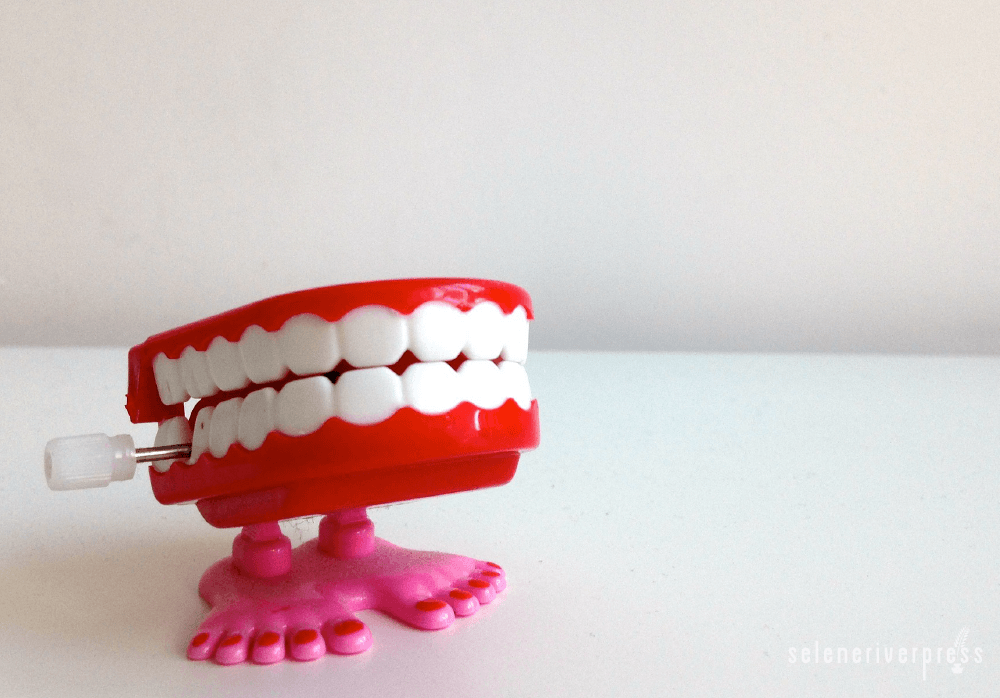If your idea of giving your teeth what they need stops at brushing, flossing, and drinking your milk, you’re being a tad shortsighted. And since the health of your teeth says a lot about your overall health, you certainly don’t want to appear like you don’t know what you’re doing. Right? Right.
Self-health education to the rescue…
In his 1940 lecture “Vitamins in Dentistry,” Dr. Royal Lee explains that vitamin deficiency plays a big role not only in ailments such as heart disease and pneumonia but also dental caries (aka cavities). In fact, Dr. Lee wrote a paper about this very topic during his senior year of dental school. Within a few more years, research conducted by Dr. Weston A. Price during his world travels (and documented in his renowned book Nutrition and Physical Degeneration) confirmed this theory and offered proof to the masses.
Now, you won’t get any conditions brought on by malnourishment just because you didn’t get enough vitamin D for a month. It’s much more complicated than that. They’re spurred on when you don’t provide your body everything it needs for an extended period of time. And since vitamins work together as a complex, malnourishment isn’t typically a result of missing just one of them.
Let’s take a look at the nutrients your teeth really need to give your pearly whites every advantage possible.
- Vitamin A: Keeps your connective tissue healthy—and we certainly want our teeth to stay connected.
- Vitamin B complex: A deficiency of these nutrients will display itself as excessive redness of the tongue and throat.
- Vitamin C: A key player in health integrity on a cellular level, in this case your teeth and jaw bone. Chronic low levels of vitamin C cause bone decalcification, and you end up with loose teeth. Vitamin C also helps against infection by neutralizing the germs in your saliva that cause such infections.
- Vitamin D: Increases the blood serum levels of calcium, making calcium available for all the other vitamins to do their jobs.
- Vitamin F: Works hand-in-hand with vitamin D to make sure calcium doesn’t just stay in the bloodstream but gets to specific areas of the body where it needs to be. When certain tissues are low in calcium, it causes something like cold sores, and vitamin F pulls calcium to those tissues, bringing a return to health. Dr. Lee points to butter and cod liver oil as good sources of this essential nutrient.
There you have the key players in the health of your teeth. While there will be times when you need an increased amount of a particular vitamin, such as vitamin C to fight off an infection, a balanced combination of all of them is important to long-term health. If you’re able to get these nutrients from whole food sources like raw milk, your body will be even quicker to respond. Hopefully you have a health care professional in your life who is well-versed in nutrition and able to help you determine the proper dosages and best vitamin sources for you.
Of course, your teeth still need you to keep up with your brushing and flossing habit. And if you have access to it, drinking a glass of raw milk every day is beneficial. But you can see that there’s much more to strong, healthy teeth and gums than those three things. A variety of fresh, wholesome foods on a daily basis is a good foundation. Include a high quality supplement when your body calls for it, and you’ll be rockin’ the strongest set of choppers in the neighborhood.
Build on your self-health education with a few more of the dental-related articles in the SRP Historical Archives:
- “Fundamentals of Nutrition for Dentists and Physicians,” by N. Phillip Norman, MD. The author suggests physicians and dentists should have been bigger advocates for our health when commercial (devitalized) foods were first coming to the market.
- “Deaf Smith’s Secret: An Explanation of the Deaf Smith Country,” by A.W. Erickson. This article explores a place in Texas known in the 1940s for having the healthiest teeth around and attributes it to the mineral-rich soil and water supply.
- “Case Studies in Nutritional Dentistry – Joan and Nancy,” by Fred D. Miller, DDS. Miller shares his firsthand experience with the power nutrition has on the health of our teeth.



